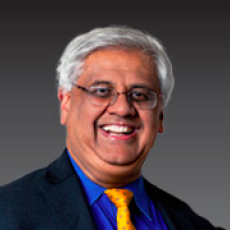The signature element of the Blum Center’s Global Poverty & Practice undergraduate minor is a “practice experience” for students to connect the theory and practice of poverty action. Students select to work with nongovernmental organizations, government agencies, social movements, or community projects that focus on various dimensions of poverty action—from community health and food security to economic justice and grassroots political power, in the U.S. and abroad.
The COVID-19 pandemic has changed that. Students have been forced to cancel their summer 2020 practice experiences, and seniors have questioned their ability to finish the minor. As one student wrote, “My PE in Ghana was cancelled and since I am a senior I am unable to reschedule my PE abroad to next summer.”
To address this problem, the Blum Center created an online offering for students to engage in deep learning and to allow for mindset shifts. GPP Summer Study taught by Dr. Rachel Dzombak supported 22 students across 15 majors to explore ways in which they might create change for a problem they care about. Problems pursued by the students included:
- How might we address rising health disparities among low-income communities of color during the pandemic?
- How might we reduce rates of disease in the northern region of Peru?
- How might we expand educational technology access for young children?
Throughout the summer, GPP students leveraged toolkits from design and systems thinking to understand how to make change in a complex problem space. The first challenge was to determine what problem to tackle. Using a Ladder of Abstraction (Fig. 1), students thought critically about the problem space entailed and why it mattered. This helped them to see the problem space from multiple perspectives. They used “journey mapping” to understand, for example, the experience of an individual navigating the healthcare system during COVID-19. And they were challenged to map the system in which their problem exists—charting political, historic, economic, and social forces within specific communities.
The students also engaged in introspection exercises to apply the same innovation process to themselves. “Students are grappling with really hard problems and questions in their life: Do I return to school during a pandemic? What are my job prospects amidst a pending global recession?” said Dzombak. “The same tools that can help a student discern a global development challenge can be used to help navigate ambiguity in their own life.”
Dzombak said she structured the course so that students updated each other on their projects during each session. She also gave them time to connect about the complexity of being a student during a global pandemic. Asynchronous videos and resources allowed students to go deeper into their projects as time allowed.
Said one student, “The Global Poverty & Practice Summer Study gave me a tool set to break down an issue and figure out ways I could begin to implement the changes I want seen.” A second shared: “It made me realize that GPP and my practice experience actually deal with real aspects of the world that need to be examined and not merely be seen as a ‘minor’ or a ‘practice.’”




